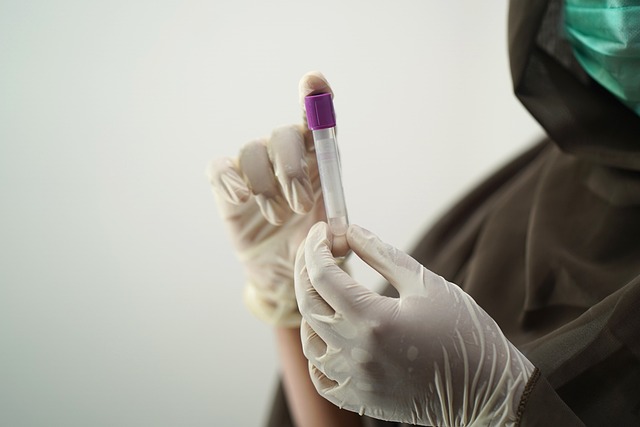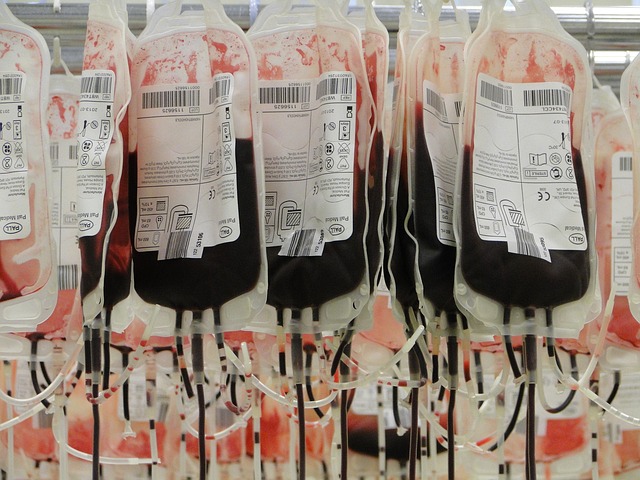The UK Testosterone Blood Test is a vital diagnostic tool for assessing male reproductive health and fertility by accurately measuring serum testosterone levels, which are key to male sexual development, sperm production, and maintaining sexual function. It is instrumental in diagnosing hypogonadism, a condition marked by low testicular testosterone production. The test, typically performed via a morning blood draw for the most accurate results, helps healthcare providers identify and treat conditions related to androgen deficiency. Its application extends beyond male health, as it also plays a significant role in diagnosing female fertility issues, particularly Polycystic Ovary Syndrome (PCOS), by evaluating androgen levels alongside comprehensive hormone profiling that includes FSH, LH, estrogen, progesterone, and thyroid hormones. This enables the creation of tailored treatment strategies for both men and women within the UK's healthcare system, improving the chances of successful fertility outcomes.
Reproductive health challenges affect individuals across the gender spectrum, with hormonal imbalances often at the core of these issues. This article delves into the pivotal role of hormone analysis, particularly focusing on the UK Testosterone Blood Test as a diagnostic cornerstone. We explore how this test serves as an invaluable tool for medical professionals to pinpoint reproductive health concerns in both men and women, paving the way for targeted treatments and improved fertility outcomes. Through an examination of its application in diagnosing male reproductive problems and understanding hormonal imbalances that affect female fertility, we highlight the significance of this test within the UK’s healthcare landscape.
- Understanding the UK Testosterone Blood Test: A Key Diagnostic Tool for Reproductive Health
- The Role of Hormone Analysis in Identifying and Treating Male Reproductive Issues
- Hormonal Imbalances and Female Fertility: How Hormone Analysis Can Provide Clarity and Solutions
Understanding the UK Testosterone Blood Test: A Key Diagnostic Tool for Reproductive Health

The UK Testosterone Blood Test is a critical diagnostic tool in the assessment and management of reproductive health issues, particularly those affecting males. This test measures the levels of testosterone, a key hormone responsible for the development of male characteristics and the maintenance of sperm production and sexual function. In men, optimal testosterone levels are essential for overall well-being and fertility. A deviation from these levels can indicate a range of conditions such as hypogonadism, which is characterised by insufficient testosterone production by the testes. Understanding the results of a UK Testosterone Blood Test allows healthcare providers to tailor treatment plans that may include hormone replacement therapy or other interventions aimed at restoring hormonal balance. The test is straightforward; a sample of blood is taken, typically in the morning when testosterone levels are at their peak. The accuracy and reliability of the UK Testosterone Blood Test make it an indispensable tool for diagnosing and monitoring reproductive health issues related to androgen deficiency or excess. It enables early detection and intervention, which is key to improving male reproductive health outcomes and ensuring optimal fertility. With the increasing prevalence of reproductive health concerns, the UK Testosterone Blood Test remains an invaluable diagnostic resource within the National Health Service (NHS) and private healthcare settings.
The Role of Hormone Analysis in Identifying and Treating Male Reproductive Issues

Hormone analysis plays a pivotal role in the diagnosis and management of male reproductive issues, particularly those related to testosterone levels. In the UK, a Testosterone Blood Test is routinely employed as a diagnostic tool to assess the hormonal health of males experiencing symptoms suggestive of androgen deficiency or hypogonadism. This test measures the amount of testosterone present in the bloodstream at the time of collection, which is crucial for understanding fertility and overall reproductive function. A low testosterone level can lead to a variety of issues, including reduced sperm count, decreased libido, and fatigue. The results from this blood test are instrumental in guiding treatment decisions, ranging from lifestyle modifications to hormone replacement therapy (HRT).
The interpretation of these tests by endocrinologists and reproductive specialists is a nuanced process that takes into account factors such as the individual’s age, medical history, and specific symptoms. For instance, testosterone levels naturally decline with age, so what might be considered low in a younger man may not be abnormal for an older man. Additionally, accurate hormone analysis requires careful timing of blood samples, typically first thing in the morning when testosteride levels are at their peak. Advanced healthcare providers in the UK, equipped with state-of-the-art diagnostic capabilities, can offer personalized treatment plans based on these precise measurements, thereby improving the chances of successfully addressing and managing male reproductive issues.
Hormonal Imbalances and Female Fertility: How Hormone Analysis Can Provide Clarity and Solutions

Hormonal imbalances can significantly impact female fertility, and understanding the underlying hormonal dynamics is crucial for addressing reproductive issues. Hormone analysis plays a pivotal role in this context, offering insights into a woman’s endocrine status. In the UK, healthcare providers often recommend tests such as the Testosterone Blood Test to assess androgen levels, which can influence ovarian function and overall fertility. This test is particularly important for diagnosing conditions like Polycystic Ovary Syndrome (PCOS), a leading cause of anovulation and female infertility. By measuring circulating testosterone and other hormones, doctors can tailor treatments to optimise hormonal balance and improve chances of conception. Additionally, thorough hormone profiling encompasses a range of tests that evaluate the levels of follicle-stimulating hormone (FSH), luteinizing hormone (LH), estrogen, progesterone, and thyroid hormones. Such comprehensive analysis enables healthcare professionals to pinpoint the exact hormonal discrepancies and design personalised treatment plans, thereby increasing the chances of successful pregnancy outcomes for women in the UK facing fertility challenges.
Hormone analysis, particularly as it relates to the UK Testosterone Blood Test, plays a pivotal role in diagnosing and managing reproductive health issues across genders. This comprehensive exploration has underscored the importance of precise hormonal evaluations in identifying underlying causes of fertility challenges. By integrating the insights from ‘Understanding the UK Testosterone Blood Test: A Key Diagnostic Tool for Reproductive Health’, ‘The Role of Hormone Analysis in Identifying and Treating Male Reproductive Issues’, and ‘Hormonal Imbalances and Female Fertility: How Hormone Analysis Can Provide Clarity and Solutions’, individuals can receive targeted treatments that address their specific reproductive health concerns. The advancements in hormone analysis, including the UK Testosterone Blood Test, are equipping healthcare providers with the tools necessary to improve fertility outcomes, ensuring a more personalized and effective approach to reproductive health care.
